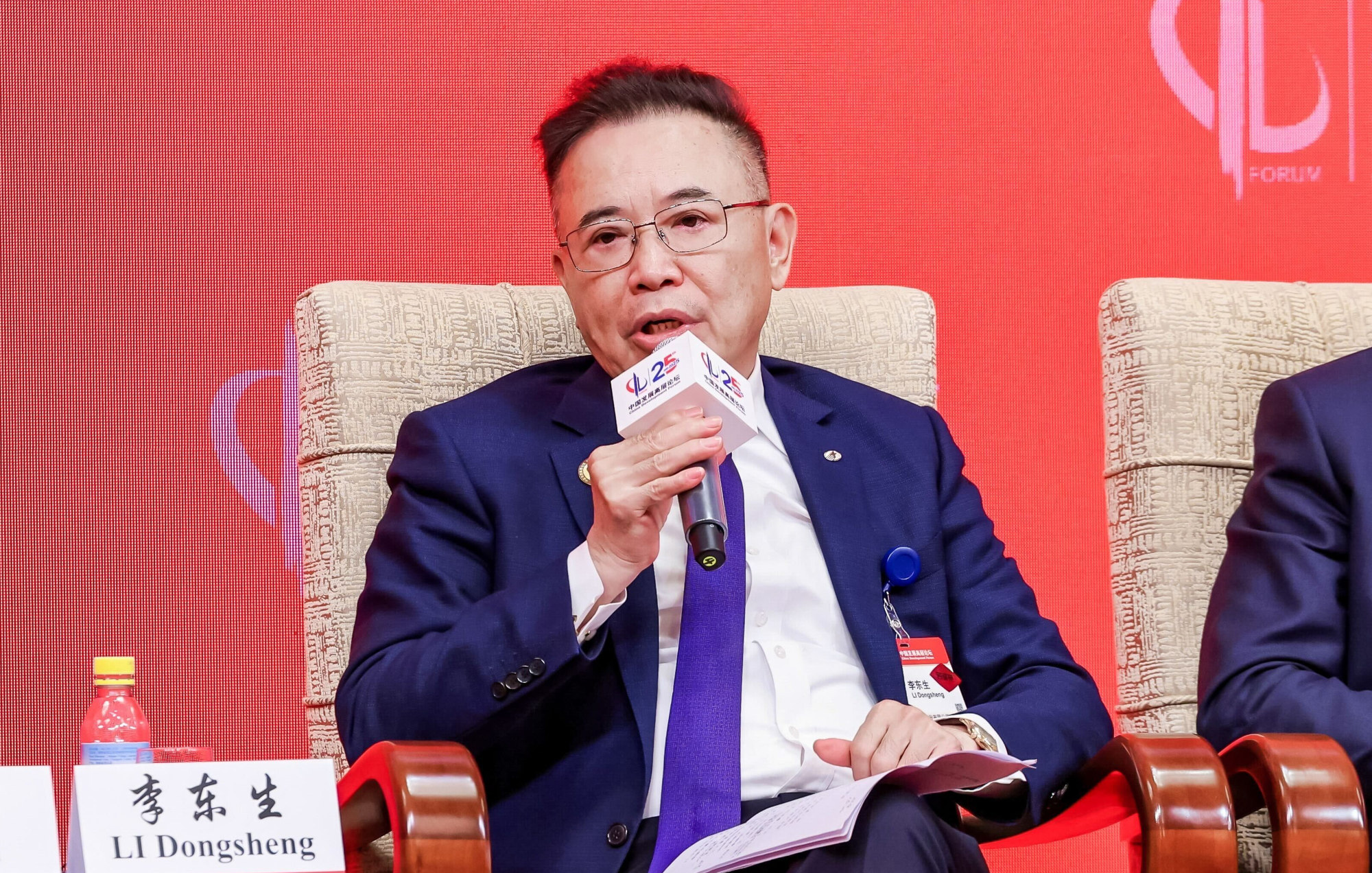
Despite US President Donald Trump’s unpredictable tariff plans and his desire to revive American manufacturing, overseas expansion by Chinese enterprises will hinge on long-term economic benefits rather than short-term policy swings, according to a Chinese electronics giant.
Building factories in the United States is not yet a viable option for TCL, its founder and chairman Li Dongsheng said, even though the US is the biggest overseas market for TCL’s products, which include televisions, washing machines and solar panels.
“The decision on where to establish a factory, in the United States or other countries, ultimately hinges on the economic benefits and competitiveness of local production,” Li said in an exclusive interview with the Post on the sidelines of the China Development Forum in Beijing on Sunday.
Do you have questions about the biggest topics and trends from around the world? Get the answers with SCMP Knowledge, our new platform of curated content with explainers, FAQs, analyses and infographics brought to you by our award-winning team.
“Currently, for our industry, setting up a factory in the US does not present a competitive advantage.”
If the US were to have stable tax policies and implement relatively competitive industrial policies, the financial considerations might just add up, he said.
“But it is still premature to discuss this matter,” Li added. “The ever-changing policies of the US government themselves constitute a significant risk factor.”

One of the first Chinese companies to build factories overseas, TCL has established 13 offshore production bases around the world in the past 20 years. Li said that in response to the previous round of US tariff increases it spent around four years building a global industrial chain, including scaling up investment in Vietnam and Mexico.
Mexico was a hot destination for Chinese manufacturers wanting to build up their overseas production capacity in recent years, thanks to the United States-Mexico-Canada Agreement, under which products made in Mexico that meet certain rules of origin have been able to enter the US market with zero tariffs.
But Trump’s threats of tariffs on the Latin American country have mostly deterred new Chinese investment in factories in Mexico since late last year.
TCL became one of the first companies from mainland China to invest in production bases in Mexico in 2014 and now makes televisions in Tijuana and Juarez.
The tariffs actually implemented by Trump may not be as extreme as the ones he is threatening, Li said, because such imposts would not be in America’s best interests.
He said TCL would not, for now, be making hasty changes to its overseas expansion plans in the wake of increased US tariffs.
“We will wait and see how things unfold,” he said. “The configuration of global industrial and supply chains is a long-term strategy. It’s not something that can be immediately adjusted simply because a certain policy has changed.”
Li said manufacturing efficiency in Southeast Asia – another key destination for Chinese companies shifting production capacity overseas – is much higher than in Mexico and is gradually catching up with China.
The current gap lies in the quality of both employees and management personnel, as well as infrastructure capacity, which all have a significant impact on the competitiveness of the manufacturing sector, he added.
“The competitiveness of manufacturing is influenced by far more than just labour costs, which constitute only a minor factor,” Li said.
More from South China Morning Post:
- China will lead the world in smart manufacturing by 2030, report says
- What Trump can – and cannot – do to make US manufacturing great again
- Made in China 2025: 4 questions on the country’s manufacturing upgrade 10 years on
- Belt and robot: Chinese start-up to open first robotics facility in Central Asia
- China’s stalled economic engines demand strong manufacturing, economist urges in Davos
For the latest news from the South China Morning Post download our mobile app. Copyright 2025.








































